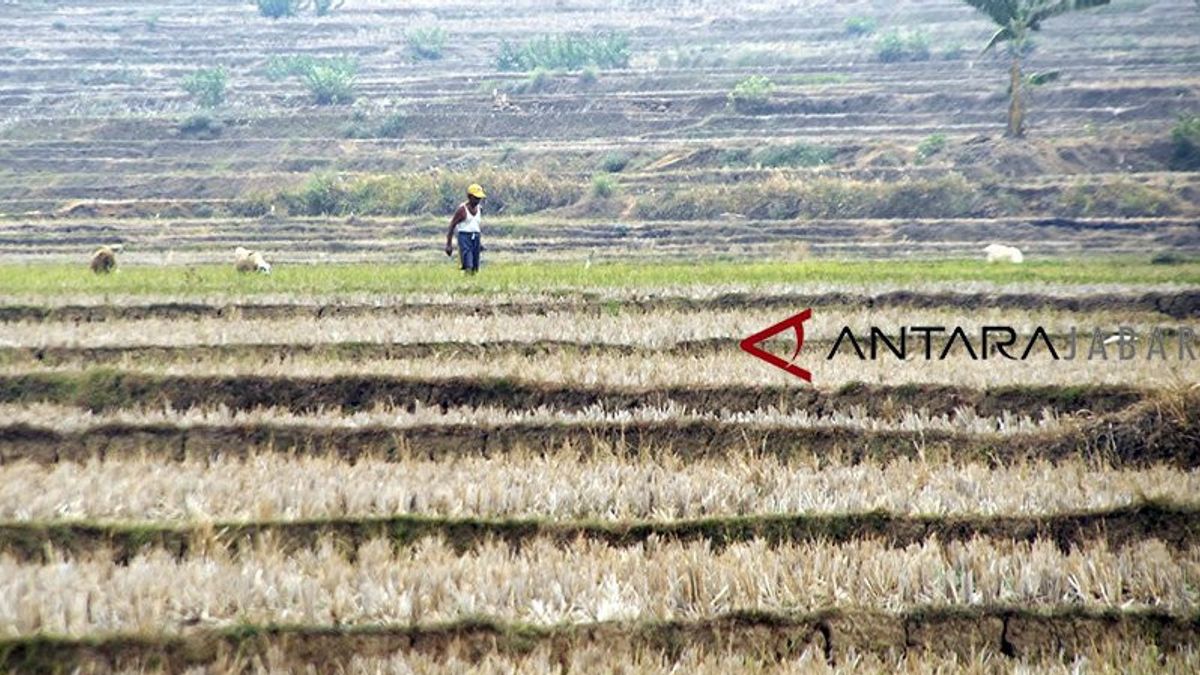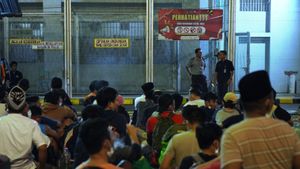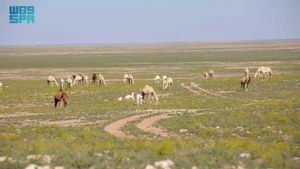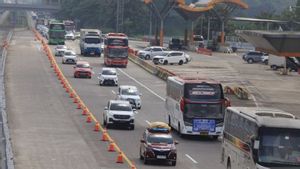BANDUNG - The Department of Food Security and Agriculture (DKPP) of West Bandung Regency, West Java, noted that rice fields in 13 villages experienced drought due to the long drought due to the El Nino phenomenon.
The head of the West Bandung Regency DKPP, Lukmanul Hakim, said that the drought of rice fields in the 13 villages was in four sub-districts, namely Cililin, Sindangkerta, Cihampelas, and Batujajar, with a total of 178 hectares of rice fields experiencing drought so far.
In terms of distribution, rice fields in Batujajar are recorded as sub-districts experiencing the largest drought with an area of 113 hectares, followed by Cililin covering an area of 33 hectares, Sindangkerta covering an area of 22 hectares, and Cihampelas covering an area of 13 hectares.
"This number may continue to grow because BMKG predicts the EL Nino phenomenon will last until the end of the year," said Lukmanul as quoted by ANTARA, Friday, August 11.
With this drought, it is certain that rice production has decreased, including in Batujajar District which is known to have a fairly large productive rice farming area.
Even Cangkorah Village, Batujajar District, has become the village that experienced the largest drought in rice fields, not only one sub-district, but also one district, with a rice field drought area of 40 hectares.
Due to this condition, Lukman said that the DKPP prepared two schemes, the first, for government farmers to prepare incentives.
اقرأ أيضا:
Meanwhile, for dry land, the government seeks to support the infrastructure of drill wells and water suction machines which are also long-term steps.
"For the provision of incentives, it is only temporary (during drought). In the long term, we have provided support for drilling well infrastructure and water suction machines from the Citarum river," said Lukman.
Lukman also asked farmers in the West Bandung region with this potential drought, to be adaptive in utilizing land, such as starting crops that require little water.
"We also ask farmers to cultivate crops according to the climate and local conditions. Some of them by carrying out the selection of varieties of seeds that are resistant to OPT and tolerant of drought," he said.
The English, Chinese, Japanese, Arabic, and French versions are automatically generated by the AI. So there may still be inaccuracies in translating, please always see Indonesian as our main language. (system supported by DigitalSiber.id)

















